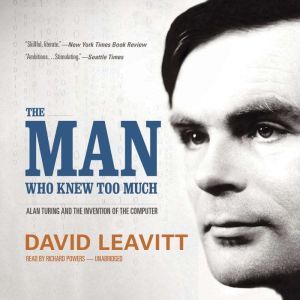Quotes
“Skillful, literate.” New York Times Book Review
“Ambitious…Stimulating.” Seattle Times
“[Leavitt] conveys abstruse information in elegant narrative
prose.” Miami (FL) Herald
“With lyrical prose and great compassion, Leavitt has
produced a simple book about a complex man involved in an almost unfathomable
task that is accessible to any reader.” Publishers Weekly
“Engaging…Leavitt’s signal accomplishment is a
comprehensible explanation of the mathematical abstractions in Turing’s seminal
papers…On the biography side, Leavitt reveals a perceptive understanding of
Turing’s personality, one more sophisticated than the common view of Turing as
a martyr to homophobia.” Booklist




